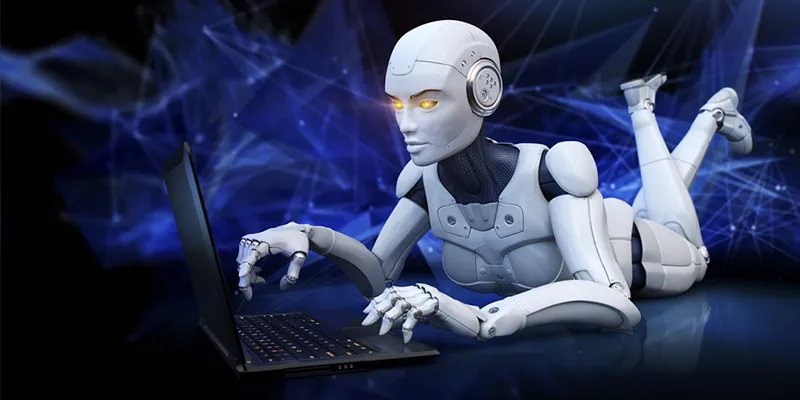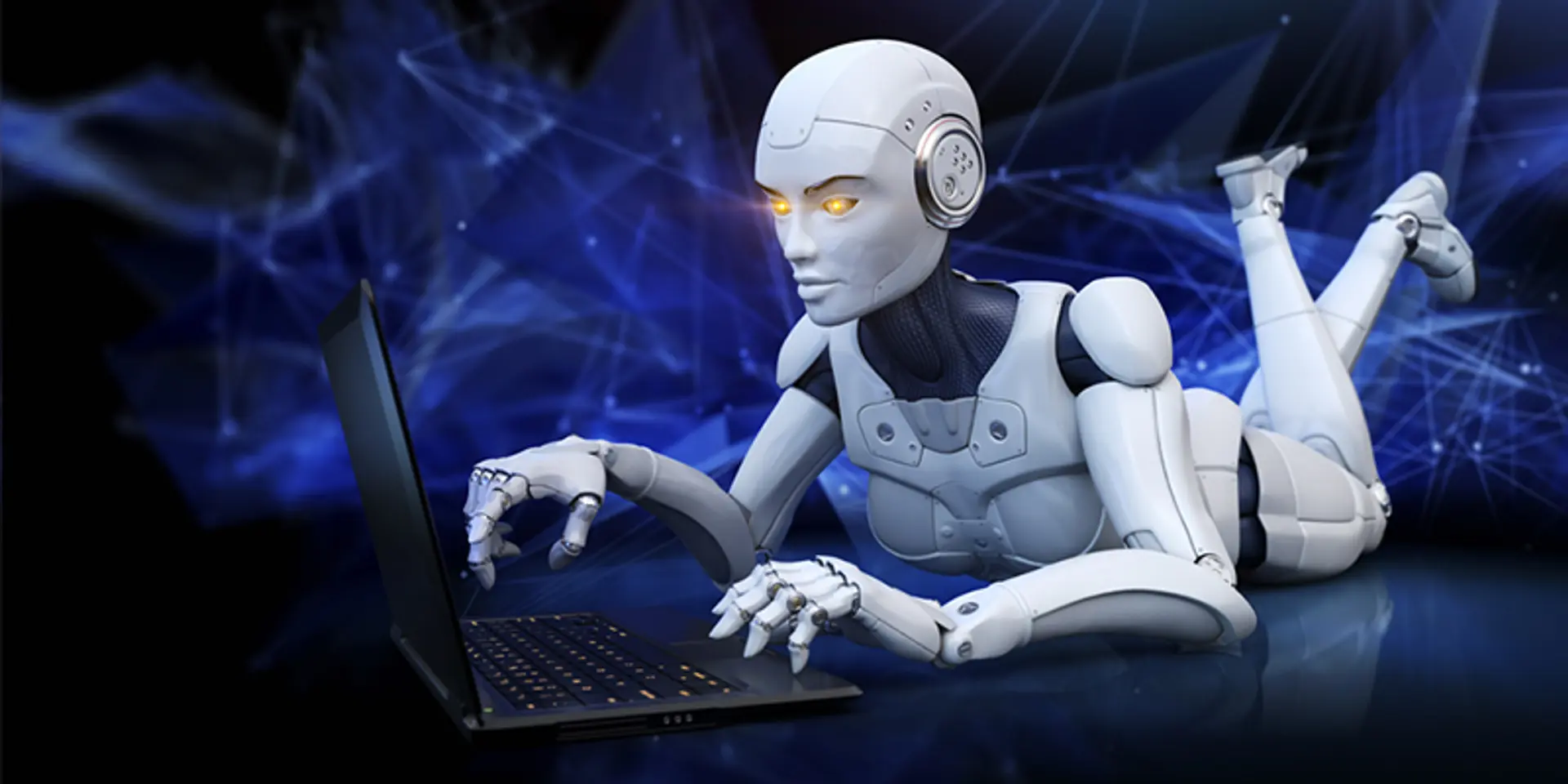The next frontier: "Flirty" or "Loving" Voice AI to give insight in to your life and business
With voice tech on the rise, a voice-controlled future – one where people and companies interact with appliances, vehicles and devices by talking to them – is here.
The eerie BladeRunner 2049 unravels the decoupling of conscience from intelligence with the protagonist, Officer K (an android himself), in love with Joi, his digital homemaker. Joi is overjoyed when K gets her a digital makeover so she can finally feel K physically.
This form of science fiction may seem a world far removed to most of us, but what was sci-fi once, is now a reality, thanks to voice, NLP and vision technologies.
Still not sure where we stand? Try chatting with a virtual voice assistant. Just ask Google Voice Assistant; Amazon’s Alexa, Lyra, or Robin; Microsoft’s Cortana; and Multiverse Software’s Extreme a few questions, and you will realise how advanced these assistants can be.
This reporter conversed with a voice assistant, and realised the impact they can have on life and business.
I asked the Google Assistant, “Have you had your dinner?”
Google’s female digital voice said, “I am always feasting on information.” She added: “I’ve got an insatiable appetite. The internet is my all-you-can-eat buffet.” Then she smiled, showing me 'emojis’ of cakes and pastries.
“Hey Google, you are wonderful,” I said.
She replied like a girl would. “Stop it, you’ll make me blush. You are not too bad yourself.”
“Hey Google, do you love me?”
The digital voice: “Well, I love having a chinwag with you.”
“Why don’t you sing for me,” I said.
After a pause, she sings, “La, la, la, la, la, la, la…This is my song and it is not very long.” A smiley follows.
Now, imagine a future when there is a decoupling of conscience and intelligence.

Hello, intelligent assistant
Yuval Noah Harari, the author of Sapiens, says this is happening as we speak, and these intelligent assistants will have a deep-rooted impact on life, sociology, economics, and the evolution of human beings.
For Amazon Web Services CTO Werner Vogels, apps have failed to democratise information and voice technologies can bring it back.
“The world is suffering from app fatigue. If you see the developing world, people don't use apps because it is not a natural way to communicate for them,” he said. Werner added that app-based businesses have not grown because the common people in the developing world do not know how to use multiple apps.
The voice lets you do things differently.
“You don’t have to type to ask questions and get answers,” Werner said.
Perhaps that’s why VW, BMW and Ford are integrating Alexa into their cars to let drivers speak to the car about the driving environment and to access information on the go rather than being directed by the system itself. In the old days, a voice-based command would be rule-based and would not understand a driver’s questions.
Simple questions things like “how much longer for a refill” and “where is the nearest petrol station?” would require the use of an app, which would distract drivers.
Interactive interface
With Alexa, the interface between humans and machines has become very interactive. This is very powerful.
“This is how we work with businesses. We give them tools after listening to them and it is a radical shift in the way we do our business,” Werner said.
Voice-as-a-service seems better than an email or using a text-based chat bot to gain or disperse information. No wonder then, that organisations are betting big on voice-based intelligence to change the way businesses operate.
Why is this happening? It is because information availability is key to business success and the software is 1,000 times faster in providing insights as compared with a human being.
According to a report titled Speech and Voice Recognition Market, the speech and voice recognition market was valued at around $6.19 billion in 2017, and is likely to reach $18.30 billion by 2023, at a CAGR of 19.8 percent between 2017 and 2023.
Businesses (Microsoft, Google, Amazon) are putting in resources for data scientists and AI engineers to create white label virtual assistants to make the CEO and her organisation accountable to growth with strategy based on insights, as opposed to gut feel. But remember, this is not the reason as to why a product was accepted or not by consumers.
The impact on businesses
Inside Volkswagen AG, a $40 billion revolution is taking place. VW wants the car to be a completely connected service and battery operated by 2030. Voice and Vision will be a major technology used in cars at that time.
“The car is now an operating system. The Volkswagen operating system will be available with a whole range of services from startups and partners. By 2020, we will have all this in place and we will be one of the largest producers of electric vehicles in the world,” said Christian Senger, VW’s Head of e-mobility.
However, he added that by then he must also prove to the Volkswagen board that this can be a sustainable business model.
If a $259 billion organisation can think like that, then all the work for the global industry is happening mostly out of India.
At Manthan, the $100 million in revenues company, engineers are building “Maya” to help businesses understand not just daily sales in the retail chain across the country, but to also provide insights on what could have been done better based on seasonality.
“Data is being crunched faster and organised better for software to make decisions,” Manthan founder Atul Jalan said.
All you have to do is ask Maya a question. “How have sales increased in Bengaluru today and what was the reason for the increase in the sale of jaggery versus sugar?” The voice will tell you that it was a traditional harvest festival this weekend and that this trend will continue for the next three days.
Why has this happened? This is largely because of the fall in storage costs and the rise in compute power.
Democratising AI
Everyone from Google to Amazon to Microsoft now has a vision to empower every person or business on the planet to achieve more, and would want to have the power of AI, which is basically a tectonic shift, to be available to everybody.
“Be it an individual or a small business, Microsoft wants to democratise AI with Voice and Vision across applications,” said Sundar Srinivasan, General Manager, AI and Research, Microsoft India.
No wonder we are seeing the rise of IIT-Madras incubated Uniphore, the speech recognition company.
Uniphore builds virtual assistants, voice-based biometrics and speech analytics. Marquee Indian clients like Axis Bank, Cognizant and Muthoot Finance are using their solutions in the field.
Cisco Executive Chairman John Chambers picked up 10 percent stake in the company recently.
Here to stay
N Shanmugam, Co-founder of [24]7.ai, said: “Machine Learning and Artificial Intelligence are here to stay. Customer service is heading that way and clients want to better customer service with a man and machine interface.”
Today, 95 percent of queries do not need human response.
“The future is a combination of data science and fast computing to help companies connect with their customers better,” Shanmugam said. Their company now handles 40 million chats and 1.5 billion conversations per year. It is experimenting with every virtual (voice and text) assistant-based API that has been released over the last three years. It has also tied up with a few well-known global tech companies, such as Microsoft, to use their Deep Learning platform for Natural Language Processing on the [24]7.ai platform.
The impact will be on the following industries:
Manufacturing: Machine diagnostics and performance can be on the device. The engineer can be warned by the voice on the app about malfunctions and maintenance. The machine can read out production schedules of all robots in the shop. Companies like Bosch are experimenting with these technologies.
Healthcare: At the base level, medical records can be tracked by doctors and hospitals to improve care. Digital voice assistants can help in surgeries and to pull up procedure histories.
Education: Imagine training a child with an intelligent voice application; it can even be a combination of voice and video. Researchers can have their hypothesis tested with voice-based statistical modules. These modules are a great opportunity for companies like Byju’s, Embibe, Edureka, Simplilearn and Jigsaw.
Banking and government services are other obvious examples where voice as a service can be used.
Rajesh Kumar R, Head-AI & Automation, Global Delivery Head at Mindtree, said: “You need to create horizons where you build capabilities and scale.” He added that you don’t need to employ data scientists because AWS, Google and Microsoft have tools that can heavy-lift data for the organisation.
You need engineers who can wrap applications around this data and build services that an organisation wants.
Mindtree is working on several retail applications where they not only heavy-lift data for an organisation, but also build services that can track consumers in store and remove queues.
Opportunities exist for businesses to use voice-as-a-service and it is says big business. Sociologically, it is only a matter of time when you will find salesmen and women having a love/hate relationship with the voice on the smartphone and working efficiently with information. There will be digital voices that they will be friendly with at home and there will be a digital voice that will guide them through their professional life.
Think about it, CEOs. You no longer need executive assistants and secretaries; all your needs will be taken care of by a digital voice with a physical presence. The time to download your personal assistant is today.



